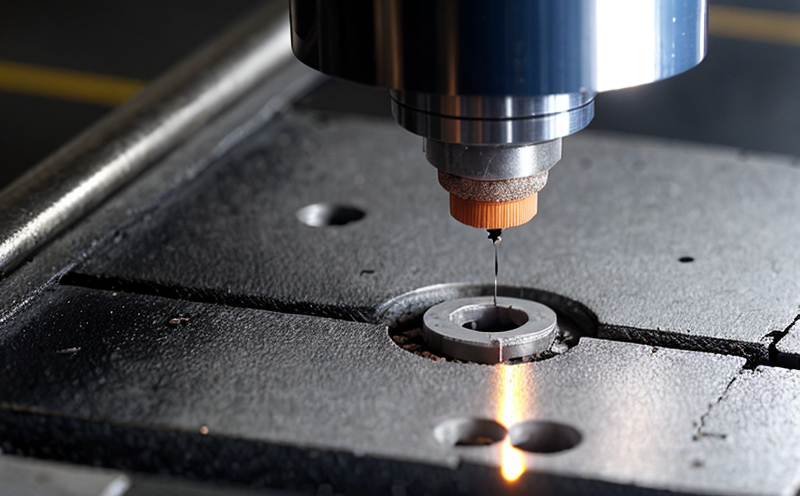ASTM F771 Coating Adhesion Failure Testing
The ASTM F771 standard provides a method to evaluate the adhesion strength of coatings on substrates, which is essential in ensuring reliability and durability. This test is particularly critical for semiconductor and microchip testing where coating integrity plays a vital role in product performance.
Coating adhesion failure can lead to reduced performance or even complete failure of the component. By using ASTM F771, we ensure that coatings are not only applied correctly but also securely bonded to the substrate, thereby enhancing the overall quality and reliability of microchips and semiconductors.
The test involves subjecting a coated specimen to various conditions such as mechanical abrasion or adhesive stress. The objective is to determine how well the coating resists detachment from the underlying material under these simulated real-world scenarios. This process helps identify potential weaknesses in the coating that might lead to premature failure during use.
For semiconductor and microchip testing, this method provides critical insights into the reliability of coatings used on various substrates like silicon or ceramic materials. It allows quality managers, compliance officers, R&D engineers, and procurement teams to make informed decisions about material selection and process optimization.
The ASTM F771 procedure is widely recognized for its accuracy and reproducibility, making it a preferred choice in industries where product integrity is paramount. This standard ensures consistency across different laboratories conducting similar tests, which is crucial for maintaining high standards of quality control.
Understanding the nuances of ASTM F771 helps stakeholders appreciate why this testing method remains indispensable despite advancements in technology and materials science. It serves as a cornerstone for ensuring that coatings meet rigorous industry expectations.
Applied Standards
- ASTM F771: Standard Test Method for Determining the Adhesion of Coatings to Substrates by Abrasion or Adhesive Stress.
The ASTM F771 standard is designed specifically for evaluating coating adhesion using abrasion and adhesive stress methods. This ensures that the testing procedure is standardized, allowing for consistent results across different facilities. The use of internationally recognized standards like ASTM F771 adds credibility to the testing process.
By adhering strictly to these guidelines, we ensure that our tests are both reliable and repeatable. Compliance with such standards is crucial in maintaining high-quality standards within semiconductor and microchip manufacturing processes.
Industry Applications
The application of ASTM F771 in semiconductor and microchip testing is extensive, covering various stages from initial design through final assembly. This method is particularly valuable for assessing the durability of coatings used on critical components such as integrated circuits and power semiconductors.
During the manufacturing process, ensuring proper coating adhesion is paramount to prevent issues that could arise due to improper bonding between the coating material and the substrate. By implementing ASTM F771 early in the development cycle, manufacturers can identify potential problems before they become costly or difficult to address later on.
Additionally, this test plays a crucial role in quality assurance efforts by helping engineers understand how different environmental factors may affect the longevity of coatings. This knowledge enables them to make necessary adjustments to improve product performance and extend shelf life.
Why Choose This Test
- Accurate evaluation of coating adhesion strength under simulated real-world conditions.
- Ensures compliance with internationally recognized standards, enhancing product reliability.
- Identifies potential weaknesses in coatings early in the manufacturing process to prevent costly failures later on.
Selecting ASTM F771 for your testing needs guarantees that you are employing a robust methodology backed by decades of use and refinement. This ensures not only consistency but also accuracy, which is essential when dealing with precision components like those found in semiconductors and microchips.
Moreover, choosing this test allows you to stay ahead of industry trends by leveraging cutting-edge techniques while maintaining traditional reliability standards. It provides a balance between innovation and proven effectiveness, ensuring that your products meet the highest quality expectations.





